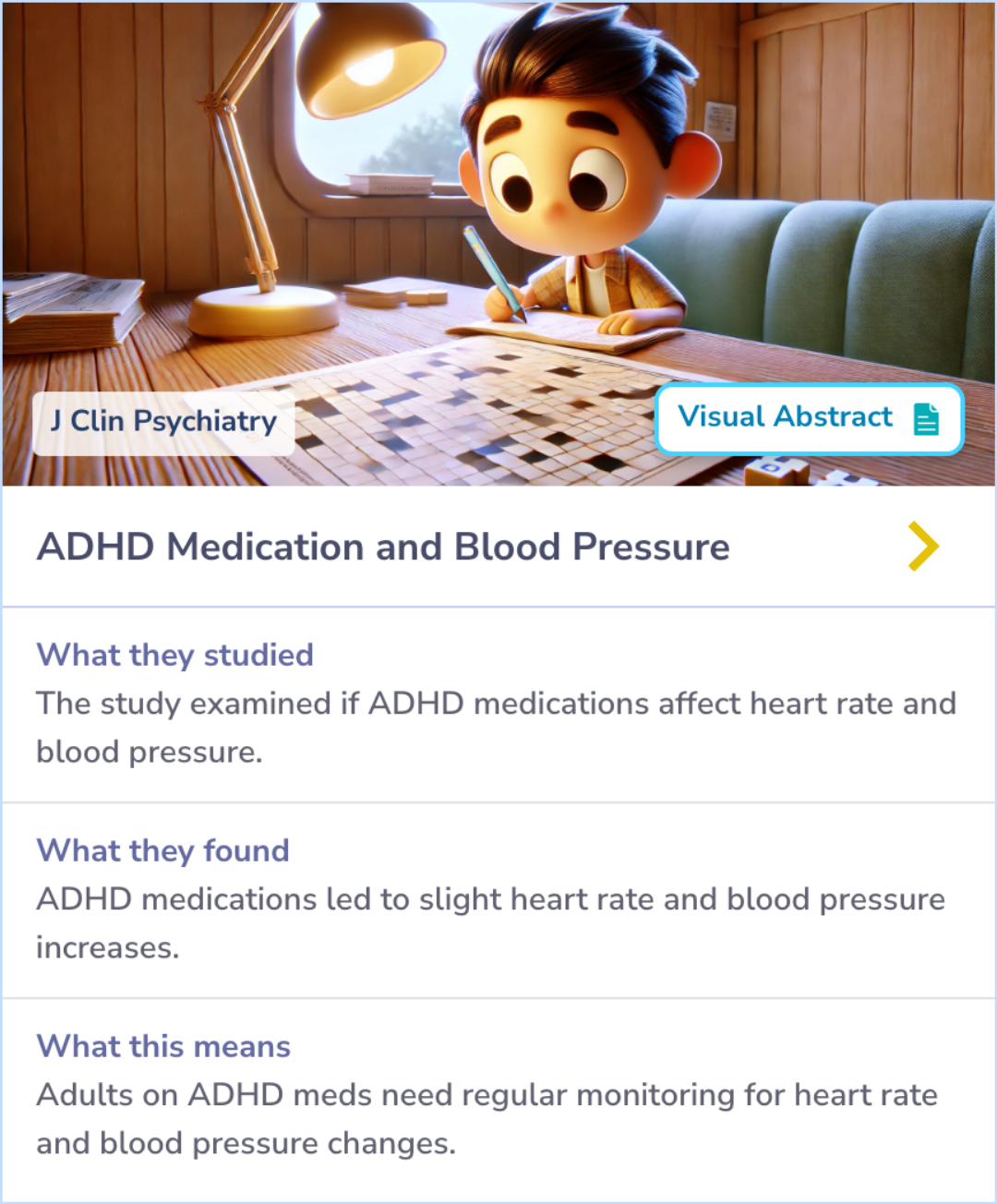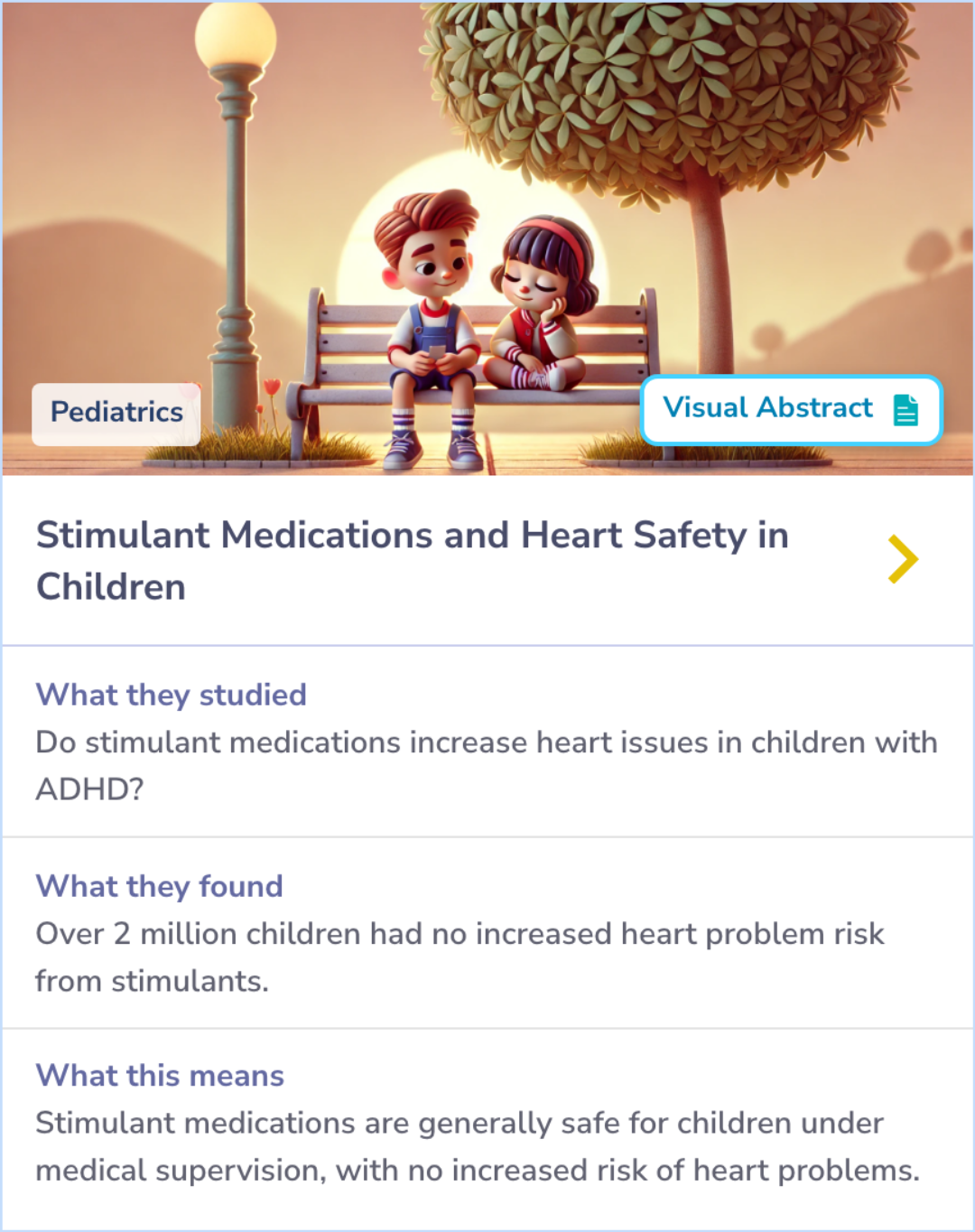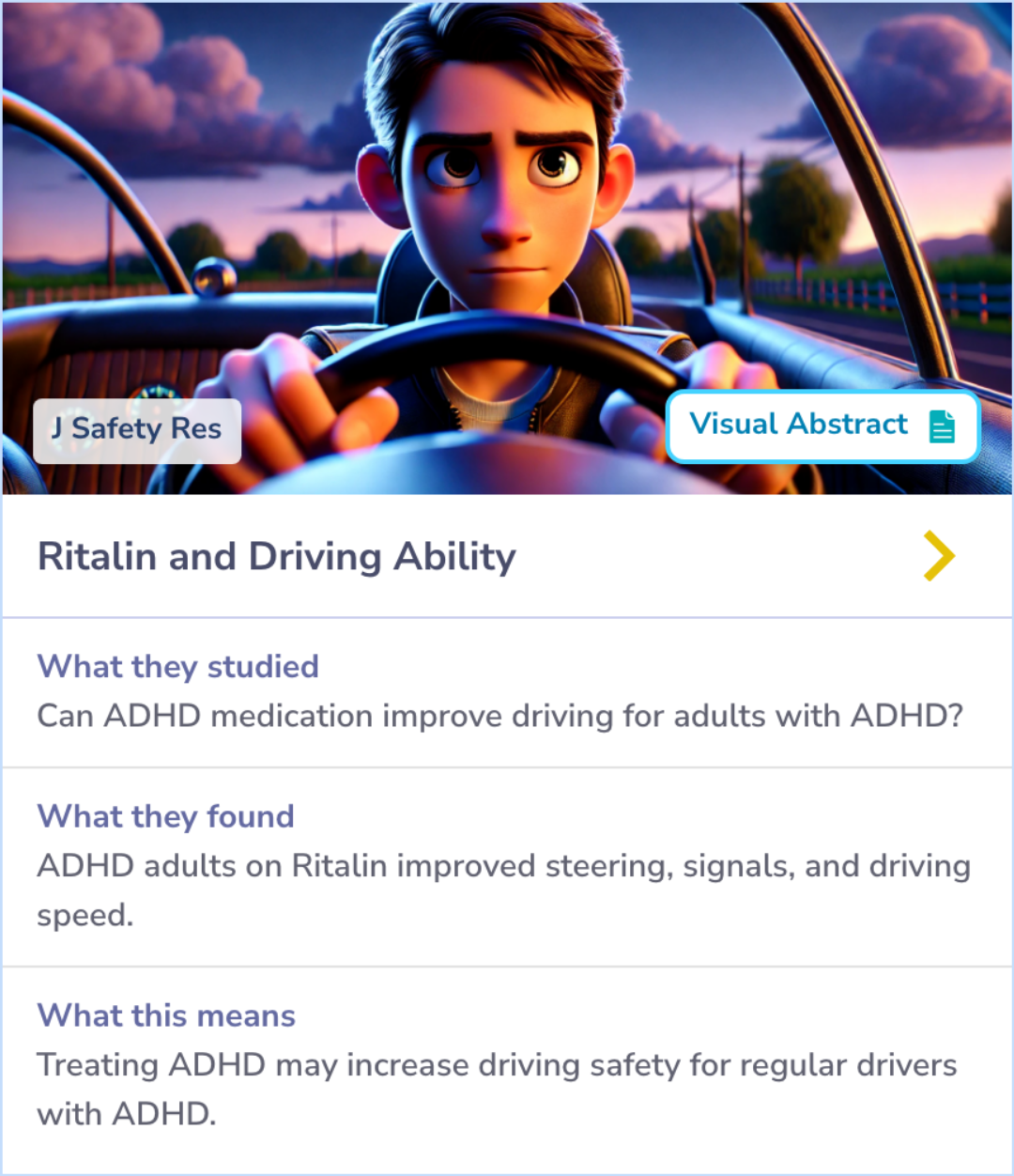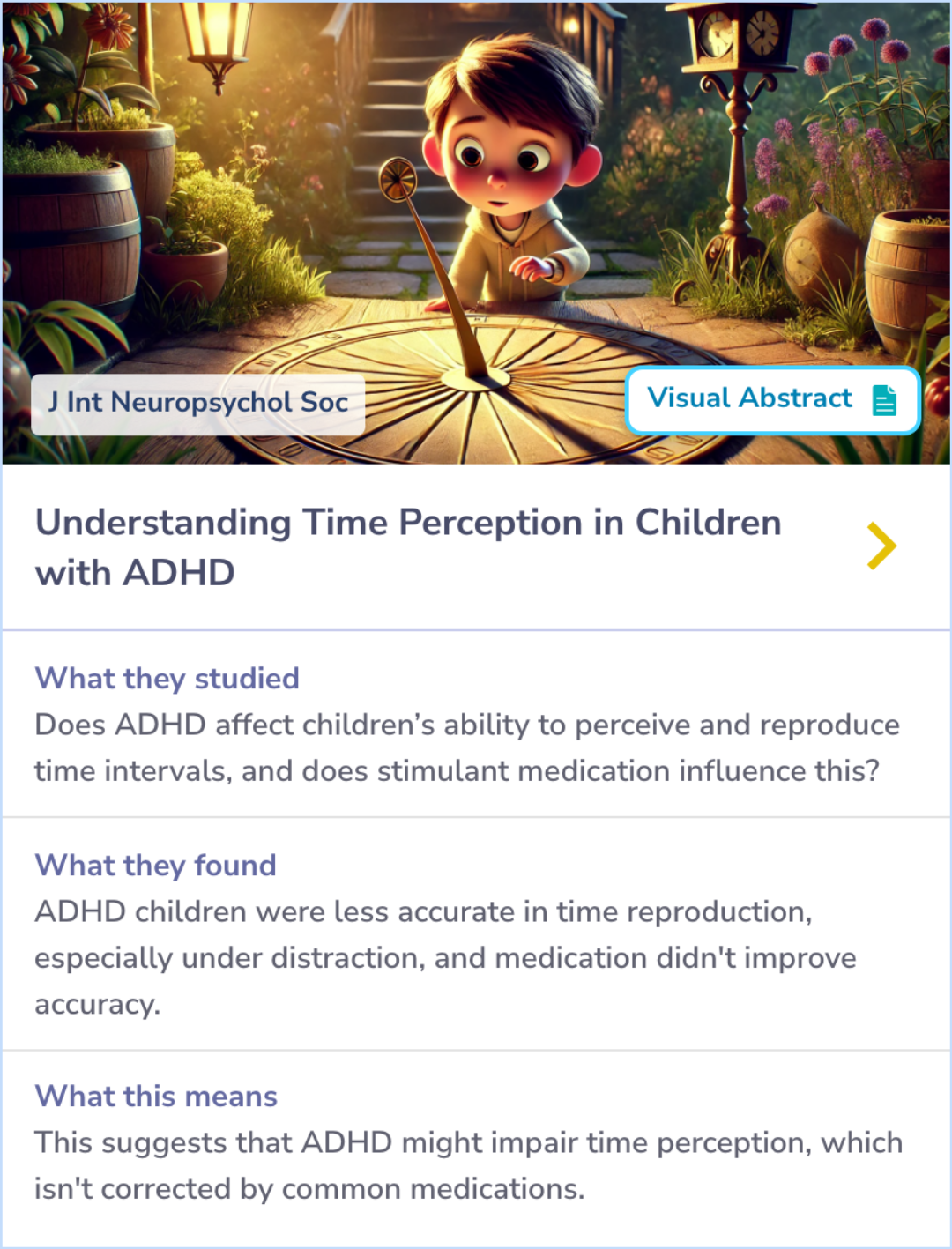Ritalin
Evidence Based Answers
Concerta, Ritalin, and Blood Pressure
Concerta can slightly raise blood pressure and heart rate, increase dopamine to aid focus, and presents potential cardiovascular risks, particularly in adults with heart issues.
Published: October 25, 2024
Click to explore a section:
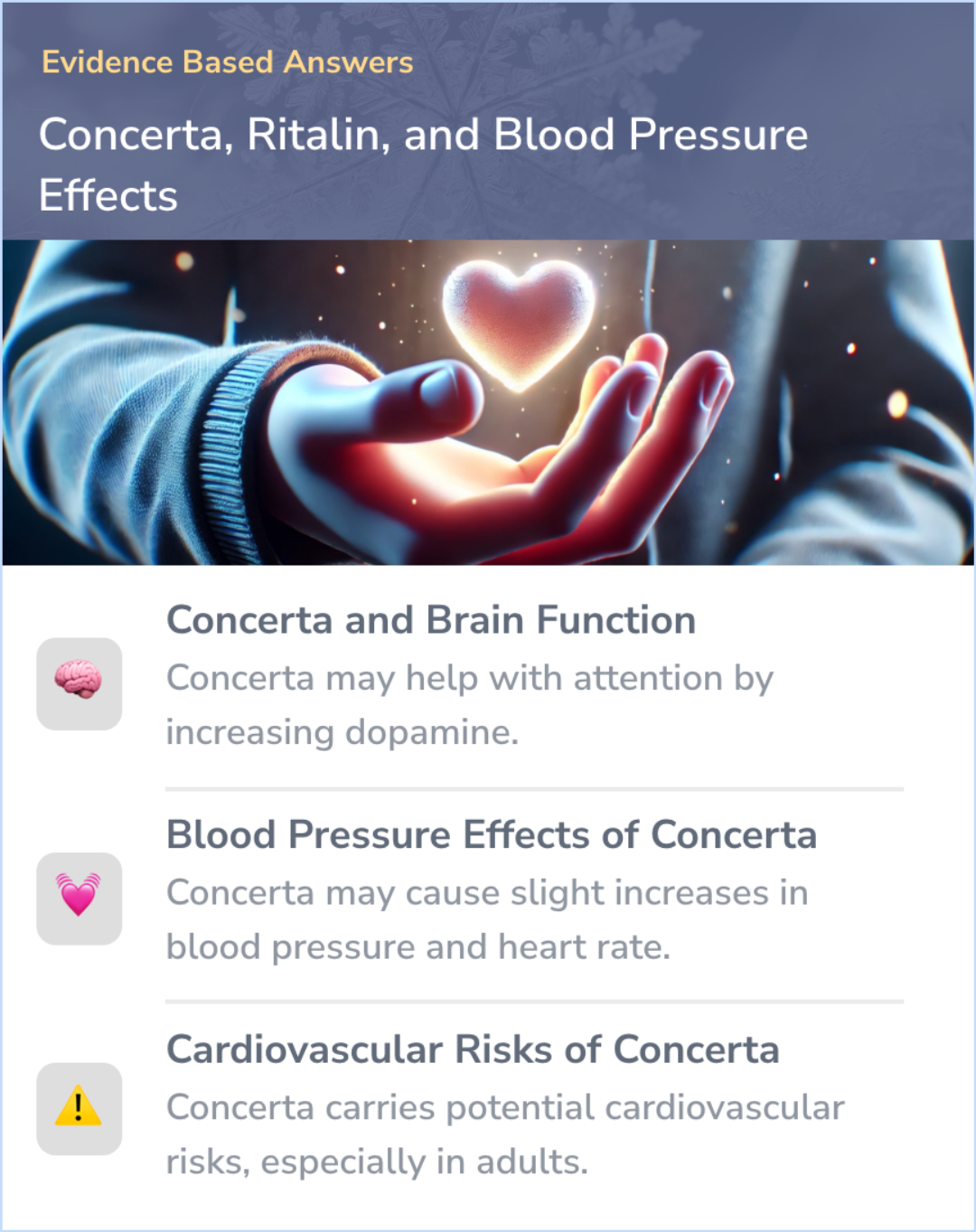
Concerta may raise blood pressure, boost dopamine, and carry cardiovascular risks.
How Concerta Works in the Brain
Concerta (methylphenidate) is a stimulant medication that may activate parts of the brain, including the brain stem and cortex. This effect could help improve attention and impulse control in people with ADHD by raising dopamine levels.
Dopamine, a chemical in the brain, plays a role in concentration and managing ADHD symptoms, though the full way Concerta works is not completely understood.
Dopamine, a chemical in the brain, plays a role in concentration and managing ADHD symptoms, though the full way Concerta works is not completely understood.
“
Source Quotes:
Meta-analyses have shown that effect sizes in short-term trials of adult ADHD are greater for stimulants compared with nonstimulant medications...methylphenidate increases dopamine by blocking dopamine transporters.
The mode of action in man is not completely understood, but Ritalin presumably activates the brain stem arousal system and cortex.
Concerta's Impact on Blood Pressure
Concerta and similar stimulants can lead to slight increases in blood pressure (3-5 mmHg) and heart rate (5 bpm). These effects are generally small but may be more noticeable for those with existing heart conditions.
The rise in blood pressure and heart rate may depend on the dose taken, with higher doses potentially causing larger increases.
The rise in blood pressure and heart rate may depend on the dose taken, with higher doses potentially causing larger increases.
“
Source Quotes:
Consistent elevations in systolic and diastolic blood pressure (3 to 5 mmHg) and heart rate (five beats per minute) have been reported to result from stimulant treatment of ADHD in adults.
Stimulant medications cause a modest increase in average blood pressure…patients whose underlying medical conditions might be compromised by increases in blood pressure…
Cardiovascular Risks for Adults on Concerta
Adults taking Concerta should be aware of cardiovascular risks, including the possibility of sudden death, stroke, and heart attack, especially for those with preexisting heart conditions.
Long-term data suggests that cardiovascular effects do not decrease over time, meaning these risks can remain throughout treatment.
Long-term data suggests that cardiovascular effects do not decrease over time, meaning these risks can remain throughout treatment.
“
Source Quotes:
Longer-term data on the cardiovascular effects of these medications in adults suggest that these effects do not diminish over time.
Sudden death, stroke, and myocardial infarction have been reported in adults taking stimulant drugs…Adults with such abnormalities should also generally not be treated with stimulant drugs.
Heart Health Monitoring with Concerta
Before starting Concerta, a complete heart evaluation, such as an ECG, may be recommended for people with a history of heart issues or structural heart problems.
It is also advised to watch for symptoms like chest pain or fainting during treatment, which could signal heart complications.
It is also advised to watch for symptoms like chest pain or fainting during treatment, which could signal heart complications.
“
Source Quotes:
Children, adolescents, or adults who are being considered for treatment with stimulant medications should have a careful history…Patients who develop symptoms such as exertional chest pain, unexplained syncope…
In addition, if a patient complains of cardiac symptoms…full cardiac workup should be performed.
Key Takeaways
Conclusions
Concerta (methylphenidate) is known to increase dopamine levels in the brain, potentially enhancing focus and impulse control in people with ADHD. This medication works by stimulating certain areas, though the exact mechanism remains partially understood.
Studies show that Concerta and similar stimulants can raise blood pressure and heart rate slightly. For individuals with preexisting heart conditions, these effects may pose cardiovascular risks, such as heart attack or stroke, with these risks persisting over long-term use.
Monitoring heart health before and during Concerta use is recommended, especially for those with a history of heart issues, as it can help identify any concerning symptoms early on.
Studies show that Concerta and similar stimulants can raise blood pressure and heart rate slightly. For individuals with preexisting heart conditions, these effects may pose cardiovascular risks, such as heart attack or stroke, with these risks persisting over long-term use.
Monitoring heart health before and during Concerta use is recommended, especially for those with a history of heart issues, as it can help identify any concerning symptoms early on.

Evidence Summary
Cardiac Risk in ADHD Medications: A Comparative Study
Safety concerns about ADHD medications like methylphenidate and amphetamine salts focus on potential cardiac risks. This study looked at over 2 million children and adolescents, tracking their use of these stimulants and any subsequent emergency department visits for heart-related issues.
The results showed no increased risk of cardiac events between current users of either drug and former users. The analysis took into account factors like gender, age, and history of circulatory disease.
The results showed no increased risk of cardiac events between current users of either drug and former users. The analysis took into account factors like gender, age, and history of circulatory disease.
Evidence Summary
Comparing Cardiac Risks in ADHD Medications
Researchers reviewed data from Florida Medicaid involving over 2 million young individuals with ADHD, aged 3 to 20, to compare safety risks of two stimulant medications. They monitored 45,683 patient-years to identify the first visit to the emergency department for heart-related issues.
Findings showed that the risk of these cardiac events was similar regardless of whether patients were using methylphenidate or amphetamine salts currently or previously.
Findings showed that the risk of these cardiac events was similar regardless of whether patients were using methylphenidate or amphetamine salts currently or previously.
Evidence Summary
ADHD Medication and Improved Driving Performance
Research has shown that people with ADHD tend to have more driving-related issues, like car accidents and traffic violations. In this study, 53 adults with ADHD were tested with two different doses of medication and a placebo using a driving simulator. Results indicated that a higher dose of medication improved steering and driving speed, while a lower dose enhanced turn signal use.
Interestingly, some participants improved simply with practice, which could have influenced the results.
Interestingly, some participants improved simply with practice, which could have influenced the results.
Evidence Summary
ADHD and Perception of Time: Distraction Matters
Recent research examines how ADHD affects children’s perception of time and their accuracy in reproducing different durations. By involving 12 ADHD children and 26 control subjects, the study tested whether distractions and different interval lengths affected time reproduction accuracy. ADHD children struggled more than controls, especially when distracted.
A follow-up study tested three doses of a medication called methylphenidate on the same 12 ADHD children to see if it improved their time perception. The results showed no significant improvement from the medication. Both studies suggest that ADHD children generally have a harder time accurately perceiving time, particularly under distraction.
A follow-up study tested three doses of a medication called methylphenidate on the same 12 ADHD children to see if it improved their time perception. The results showed no significant improvement from the medication. Both studies suggest that ADHD children generally have a harder time accurately perceiving time, particularly under distraction.
